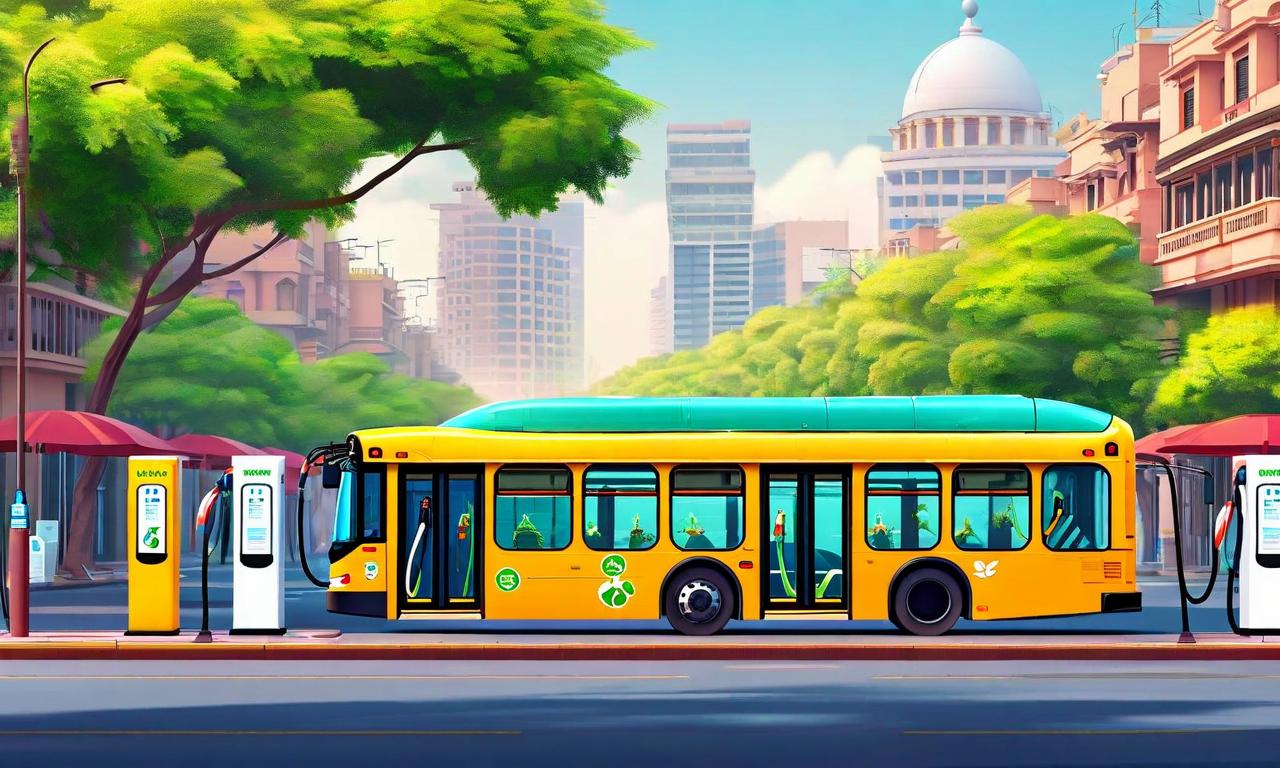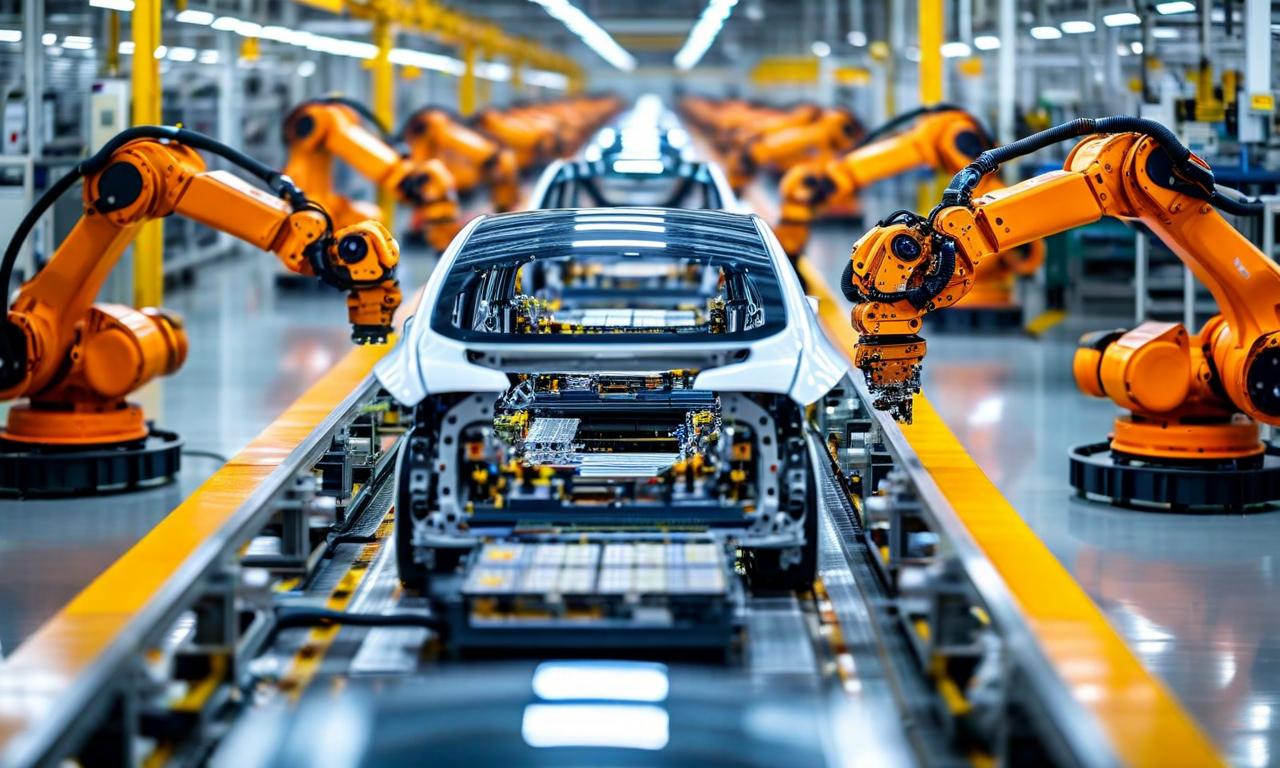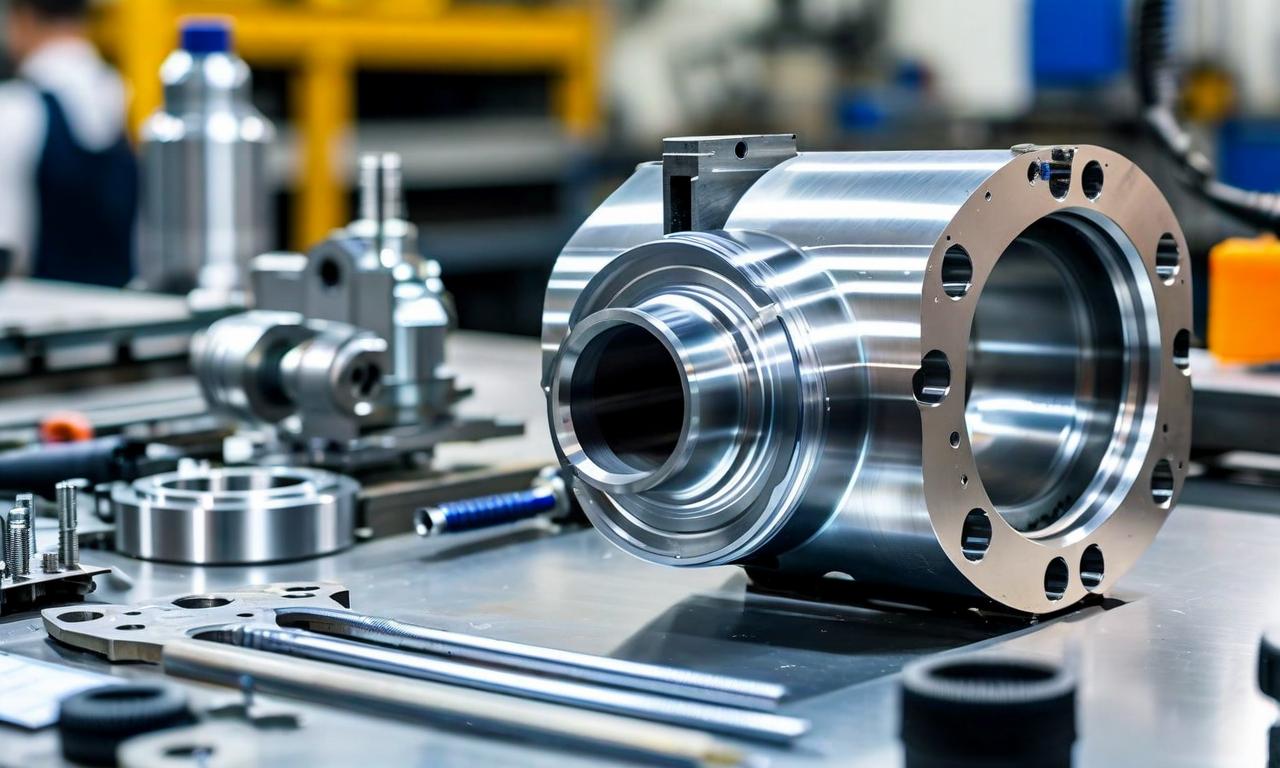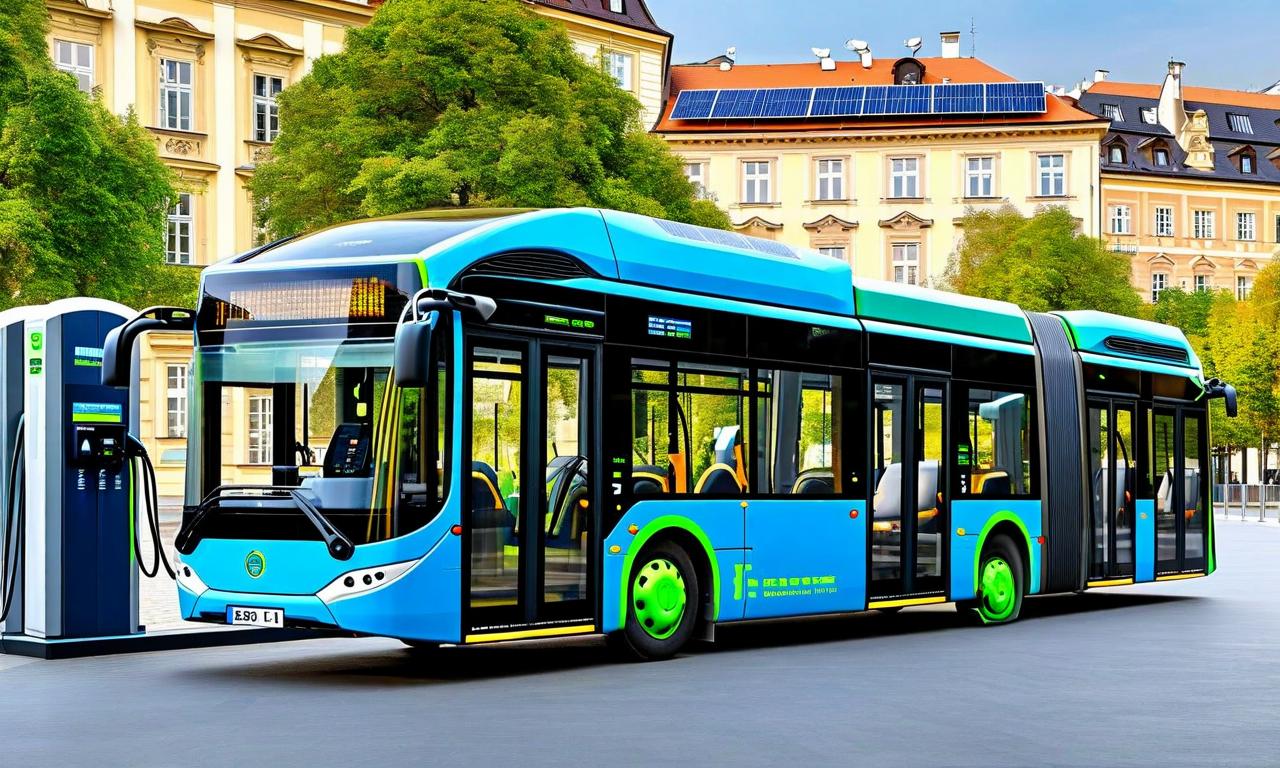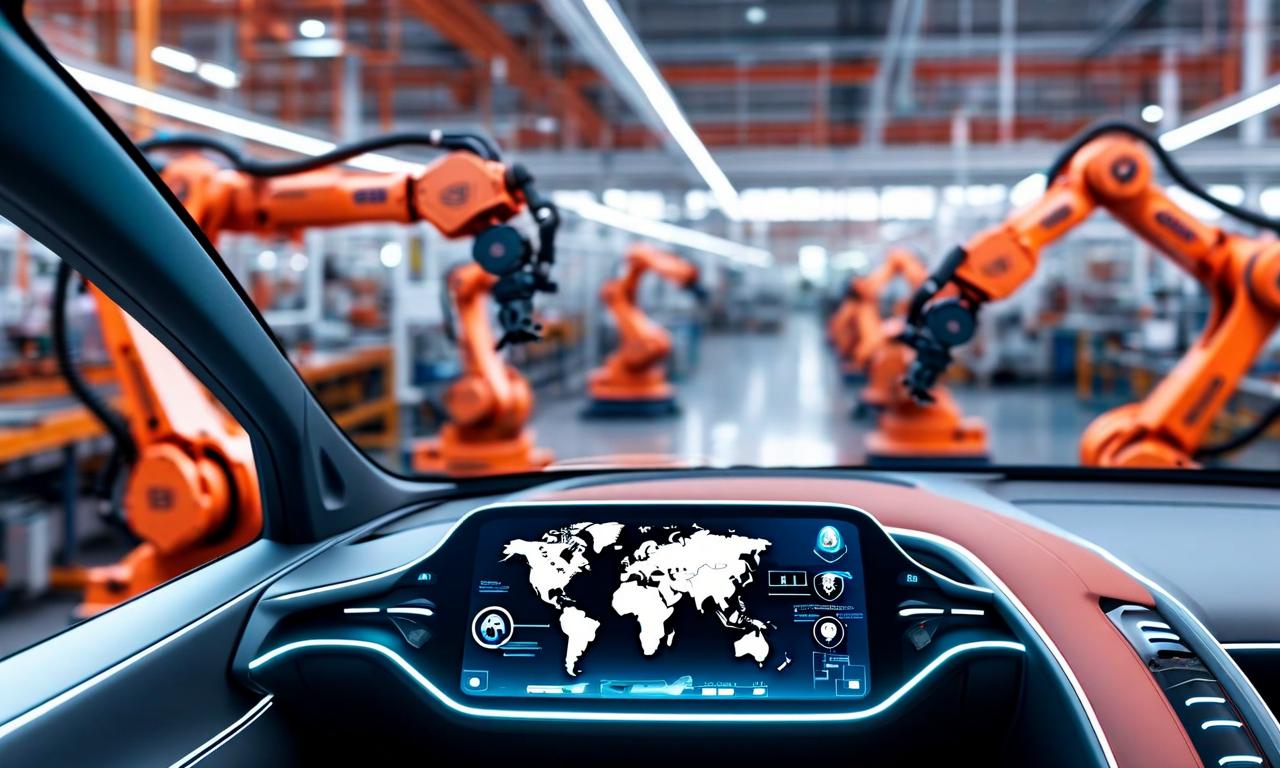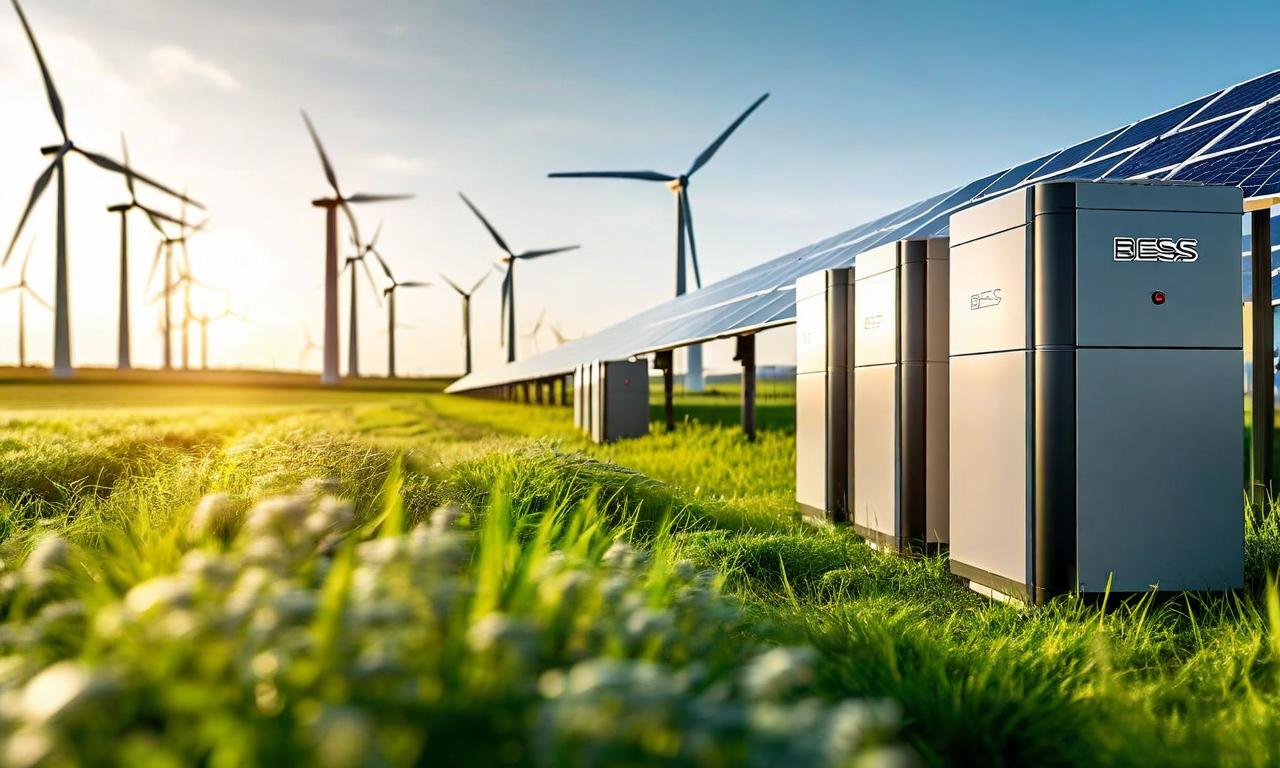JBM ECOLIFE Mobility Secures $100 Million Investment from IFC for E-Bus Expansion
JBM Auto's subsidiary, JBM ECOLIFE Mobility, has received a $100 million investment from the International Financial Corporation (IFC) to deploy 1,455 electric buses across Maharashtra, Assam, and Gujarat. The project aims to reduce CO2 emissions by over 1.6 billion kg and save 600 million liters of diesel. JBM ECOLIFE Mobility has already deployed 2,500 e-buses across India and has an order book of 11,000 e-buses. The investment introduces a Payment Security Mechanism to mitigate risks and is expected to generate employment for over 5,500 people, impacting 1 billion passengers.
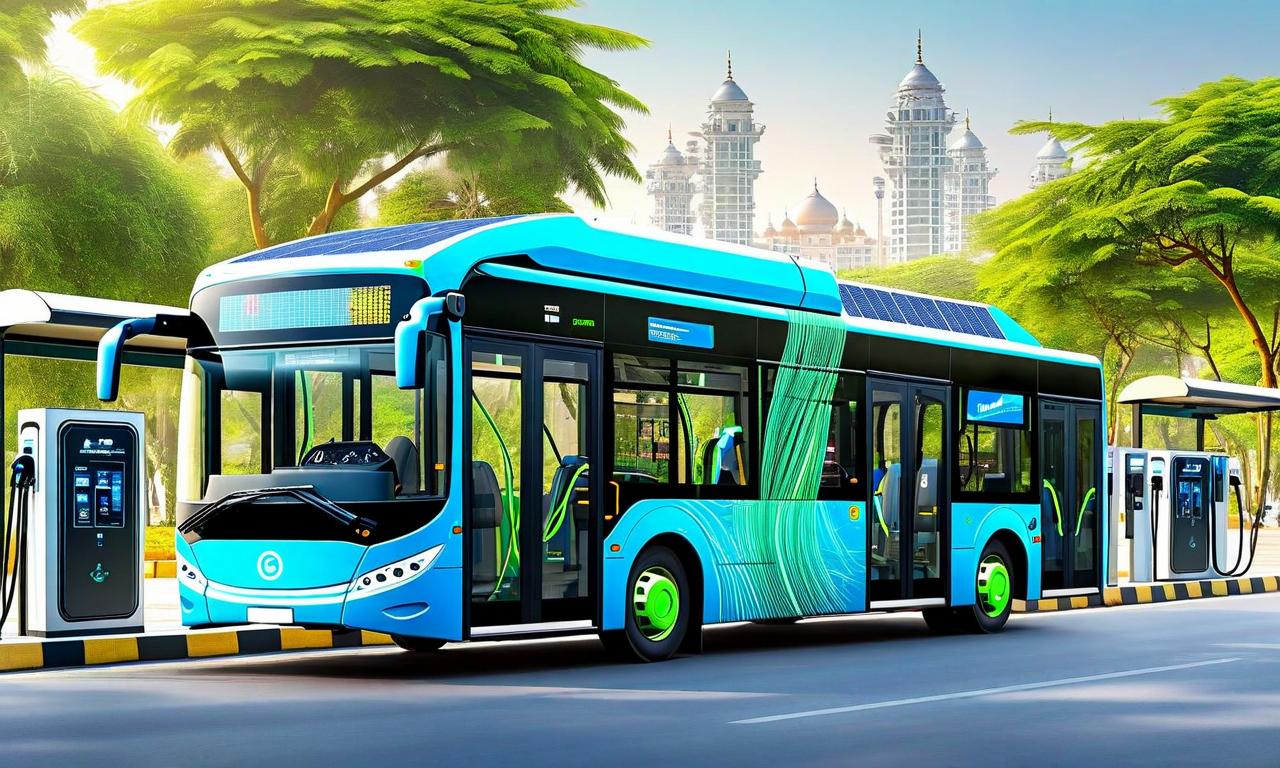
*this image is generated using AI for illustrative purposes only.
JBM Auto , through its subsidiary JBM ECOLIFE Mobility, has secured a significant $100 million capital investment from the International Financial Corporation (IFC) to accelerate the deployment of electric buses across India. This move marks a major step forward in the electrification of public transport in the country.
Investment Details and Deployment Plans
The $100 million investment, provided in INR equivalent long-term capital, will be utilized for the purchase and operation of 1,455 electric buses. These modern, air-conditioned e-buses are set to be deployed across cities in Maharashtra, Assam, and Gujarat, enhancing the public transportation infrastructure in these states.
Strategic Importance and Environmental Impact
Nishant Arya, Vice Chairman & MD of JBM Auto Ltd, highlighted the significance of this partnership, stating, "We are proud to be partnering with IFC (a member of the World Bank Group) and contributing majorly to their largest ever e-bus deployment project." He further emphasized the environmental benefits of this initiative, projecting a reduction of over 1.6 billion kg in CO2 emissions and savings of more than 600 million liters of diesel over the project tenure.
JBM's Track Record and Future Plans
JBM ECOLIFE Mobility has already made significant strides in the e-mobility sector:
- Deployed over 2,500 e-buses across 10 states and 15 airports
- Current order book of 11,000 e-buses under execution
- Clocked 200 million e-kms and served 1 billion passengers since 2018
- Operates one of the world's largest dedicated e-bus plants in Delhi-NCR, with an annual capacity of 20,000 units
IFC's Perspective
Makhtar Diop, Managing Director of IFC, expressed enthusiasm about the partnership, stating, "E-mobility is the future—and we are making it real through investments in leaders like JBM. Together, we're setting benchmarks for sustainable, resilient, and globally replicable urban transport."
Innovative Financing and Market Potential
The projects in Maharashtra and Assam, tendered under the Pradhan Mantri e-bus Sewa Scheme, introduce a formal Payment Security Mechanism (PSM) to mitigate payment risks associated with municipal and state transport undertakings. This innovative approach is expected to enhance the bankability and replicability of future e-bus projects.
With buses accounting for 70-75% of public transport trips in India, the country presents a significant opportunity for electrification. The government has set an ambitious target of 40% e-bus penetration by FY2030, and investments like this are crucial steps towards achieving this goal.
Employment and Economic Impact
The project is expected to generate employment for over 5,500 people and impact the lives of over 1 billion passengers over its tenure, showcasing its potential for both economic and social development.
This investment by IFC, its first in the e-bus sector in Asia and its largest globally, not only accelerates e-bus deployment but also strengthens urban transport resilience across Indian cities, setting a new benchmark for sustainable mobility solutions.
Historical Stock Returns for JBM Auto
| 1 Day | 5 Days | 1 Month | 6 Months | 1 Year | 5 Years |
|---|---|---|---|---|---|
| -0.33% | -2.44% | -1.63% | -3.79% | -0.74% | +601.49% |

